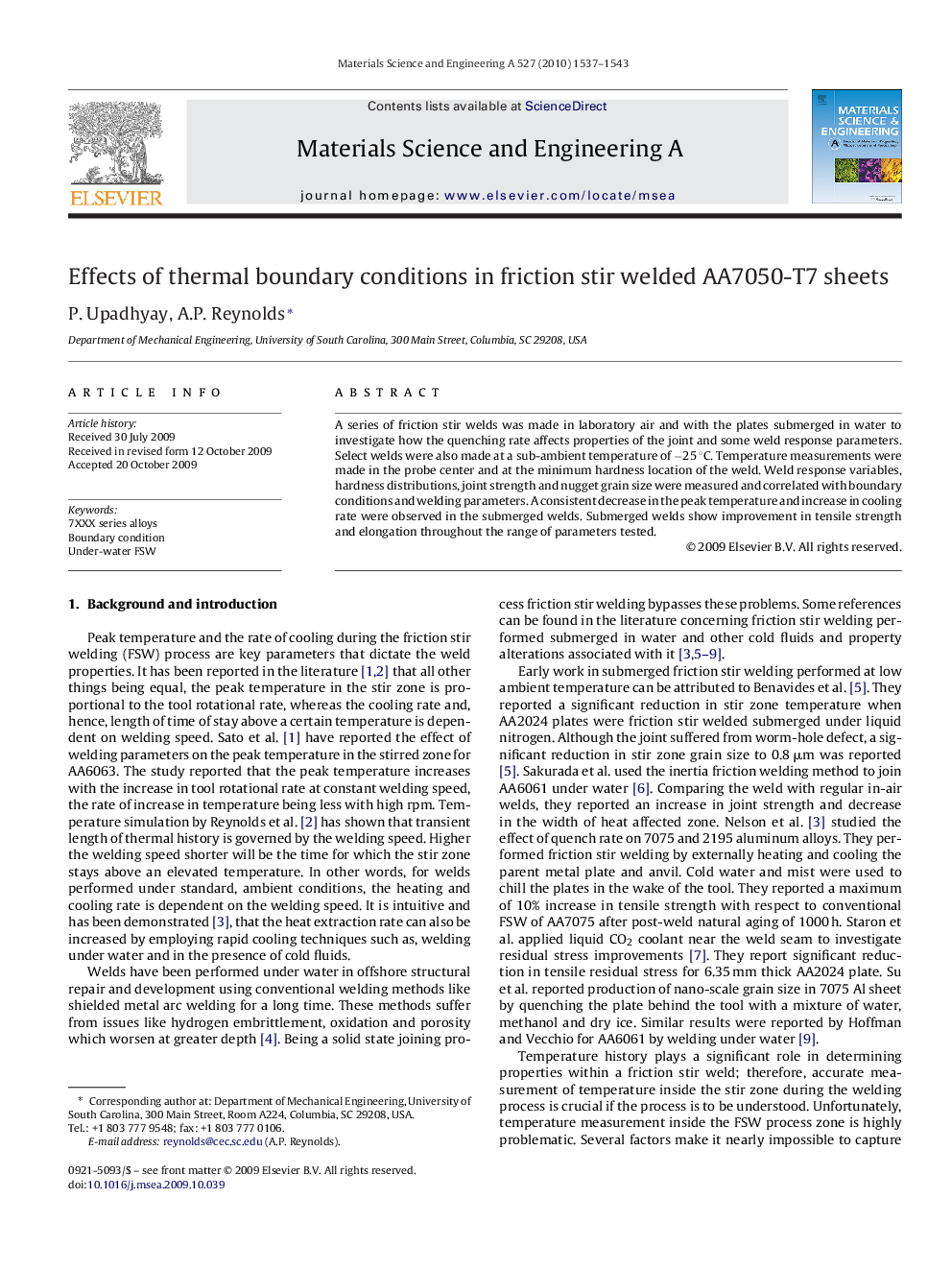| Article ID | Journal | Published Year | Pages | File Type |
|---|---|---|---|---|
| 1579744 | Materials Science and Engineering: A | 2010 | 7 Pages |
A series of friction stir welds was made in laboratory air and with the plates submerged in water to investigate how the quenching rate affects properties of the joint and some weld response parameters. Select welds were also made at a sub-ambient temperature of −25 °C. Temperature measurements were made in the probe center and at the minimum hardness location of the weld. Weld response variables, hardness distributions, joint strength and nugget grain size were measured and correlated with boundary conditions and welding parameters. A consistent decrease in the peak temperature and increase in cooling rate were observed in the submerged welds. Submerged welds show improvement in tensile strength and elongation throughout the range of parameters tested.
